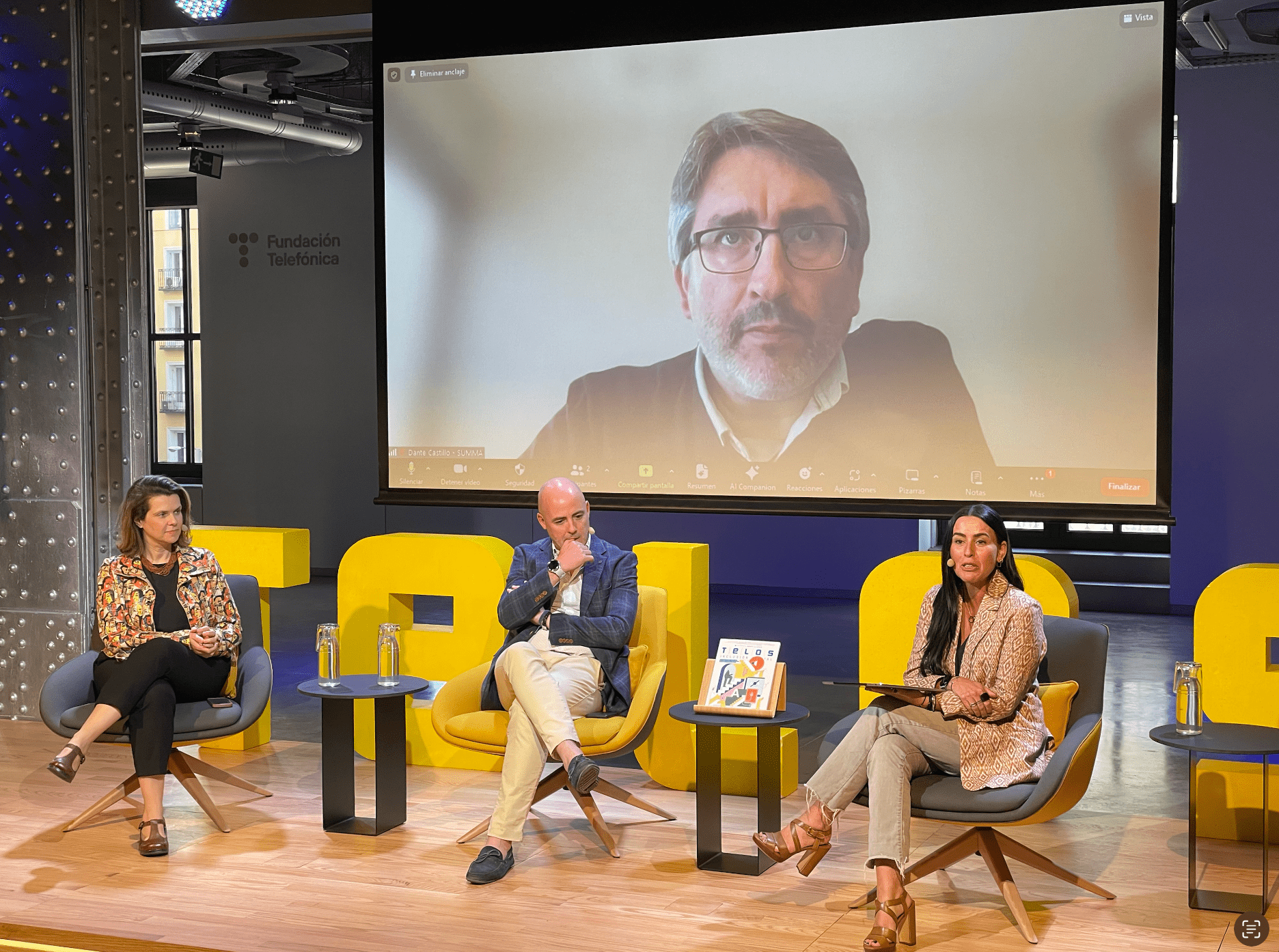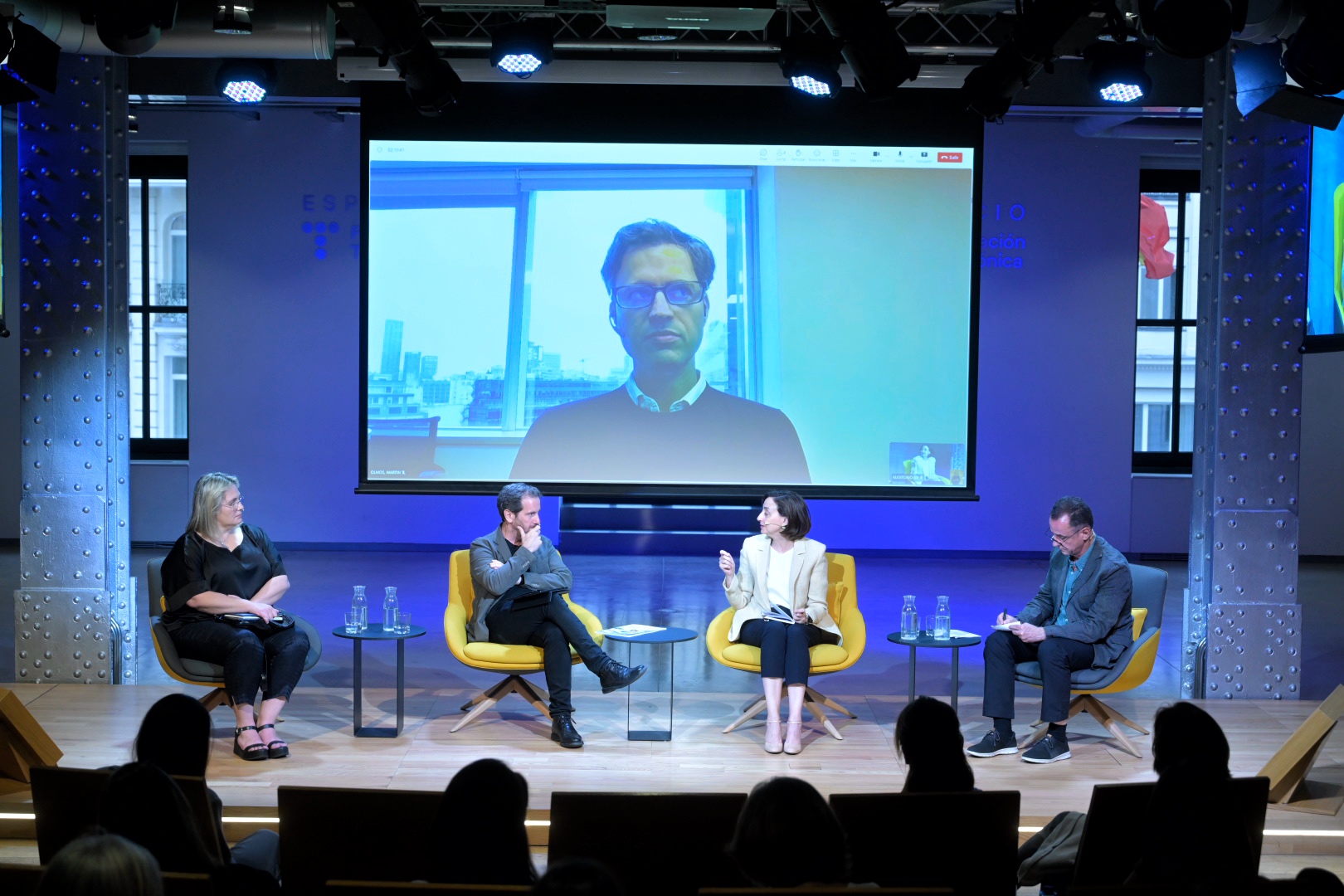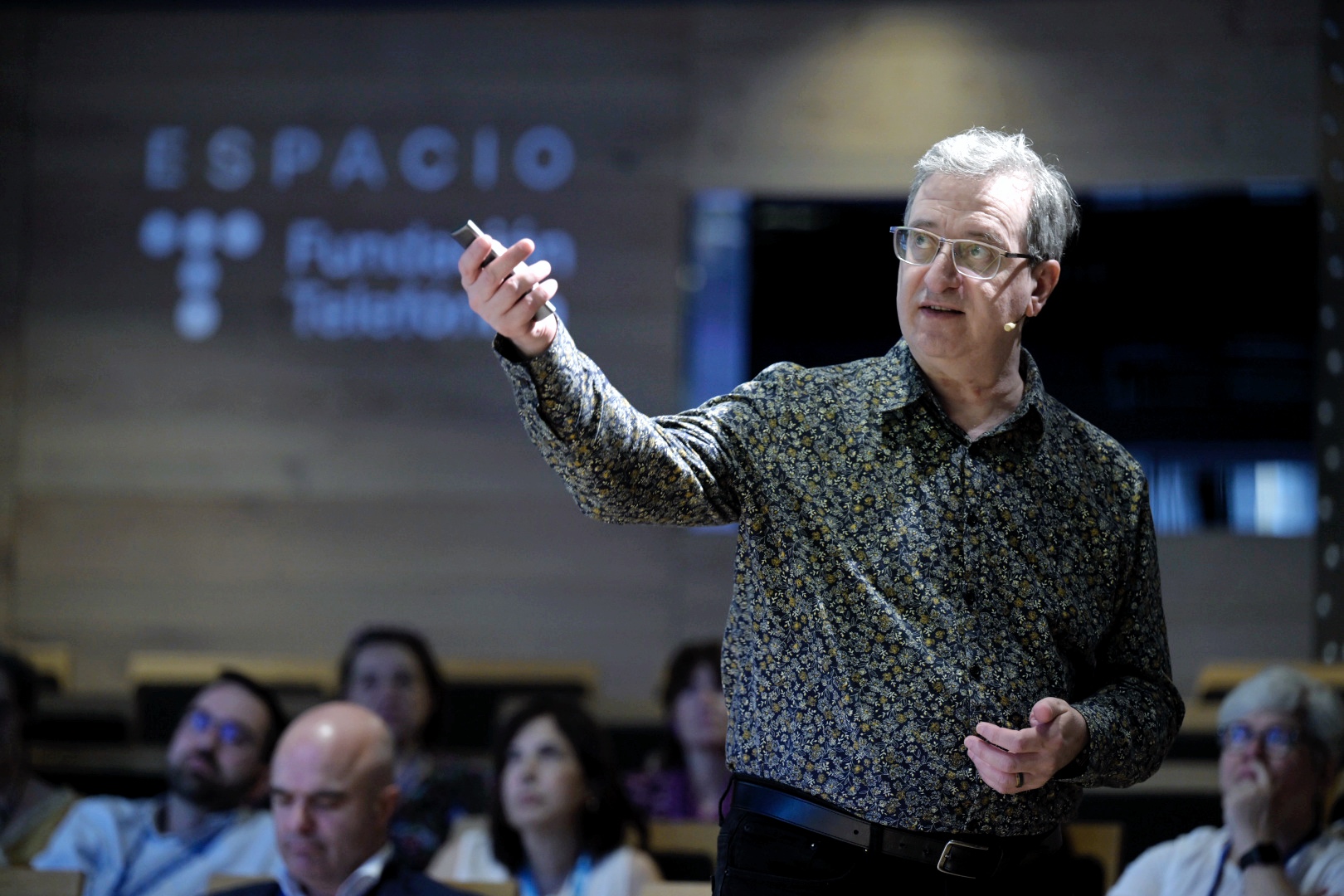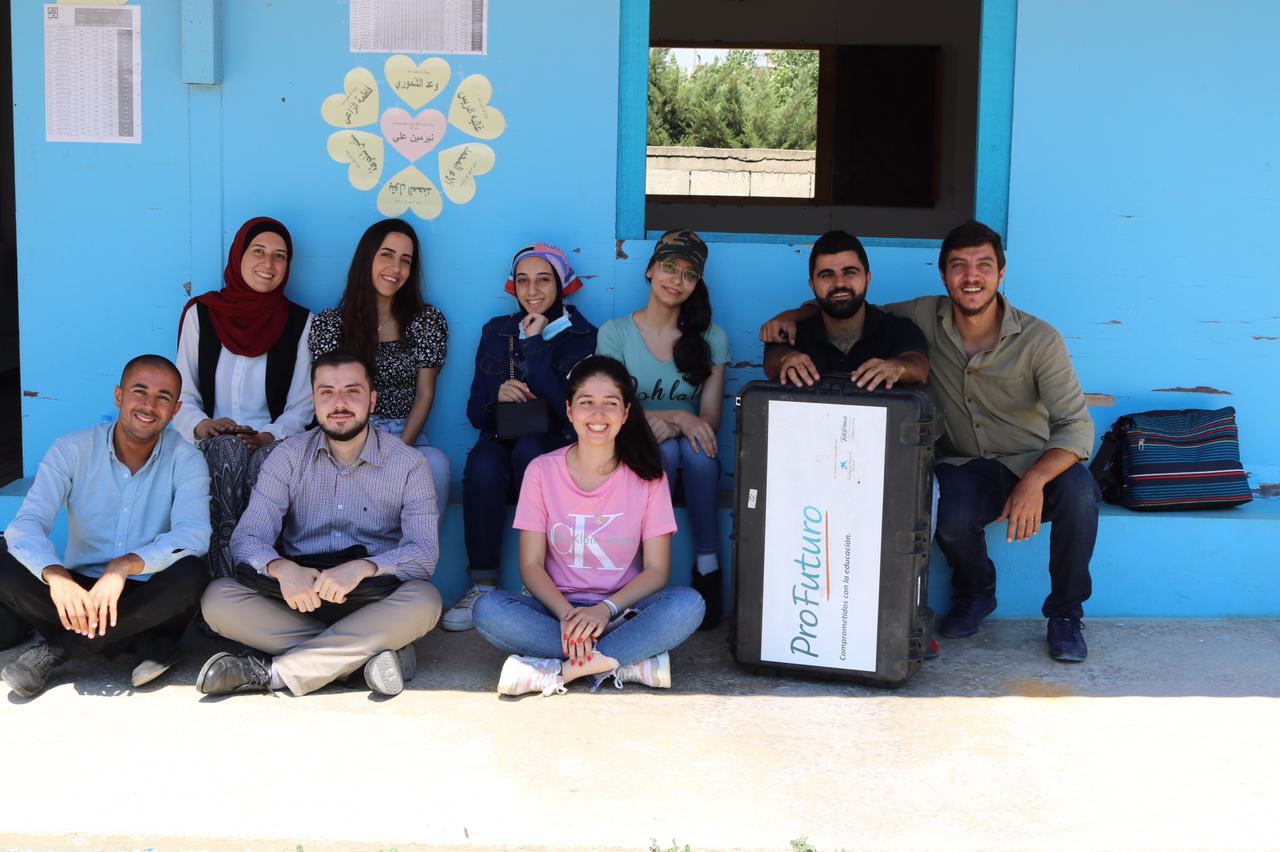TELOS, the Telefónica Foundation magazine tasked with exploring the future and preparing us for the digital society, has established the Telos Spaces as forums where technological and scientific breakthroughs are discussed, together with their impact on all walks of life, as individuals and the general public and in governmental, relational and work-related matters. TELOS seeks to fully incorporate our society into the new digital reality without leaving anyone behind.
Yesterday, 17th April, at a new meeting as part of the centenary of Telefónica, several experts gathered at the round table titled “Challenges for digital inclusion in education in vulnerable environments” to discuss the barriers existing in these environments that hinder the full digital participation of children and teachers. The event was held at Espacio Telefónica attended by prominent leaders in the sector, including Dante Castillo, director of innovative policies and practices at SUMMA, Mílada Tonarelli Gonçalves, global innovation and product manager at ProFuturo, Miguel Massigoge Galbis, general manager of Possible Lab, and Laura Cuesta Cano, expert in training in the appropriate use of technology and author of the book titled Crecer con pantallas (Growing up with screens).
The event was launched by Magdalena Brier, our managing director, who highlighted the importance of addressing the challenges of digital inclusion in education to ensure that technology benefits everyone, particularly in the most vulnerable environments, in order to build a more equitable world in which no one is left behind.
The participants emphasised the need to adapt educational programmes to the needs and realities of children in vulnerable contexts. Dante pointed to the approaches to addressing digital inclusion in schools, underlining the complexity of having to resolve issues involving access and connectivity for everyone. In his opinion, the biggest challenge with these innovations is coherence, in that the schools must consider these educational interventions while understanding the complexities of the territories. In this regard, the theory of change used by ProFuturo is a vital tool for understanding the key points and factors to be taken into account.
As for Mílada, she focused the conversation on the importance of balance. She stressed the need to manage this balance in digital inclusion educational programmes in both the online and the offline worlds, given that inclusion means access for all. She referred to the current reality, with many organisations offering educational platforms that can’t be implemented at schools with limited resources, due to a lack of harmony between what they want to offer and what the communities really need.
Miguel, based on his experience, added that this lack of coherence arises due to a lack of physical contact with the people and spaces. To understand the reality of a community, it’s essential to do fieldwork, to talk to the teachers and students and to understand the challenges they face in order to promote authentic solutions.
This space was a meeting point for discussing different initiatives, methodologies and future projections in the field of digital inclusion in education, particularly with technology as a vehicle to reach more people. During the event, the attendees were given the chance to actively take part and clarify their doubts about the subject. These meetings underline the urgency of working on digital inclusion in education to ensure quality education for children around the world, not only in line with ProFuturo’s goals but also with SDG 4 of the United Nations.
References were made to the work done by UNESCO and the GEM Report, highlighting the importance of considering “technology on whose terms” in order to reach a clear conclusion: digital inclusion shouldn’t focus on leaving anyone behind, as all realities entail unique challenges and opportunities, and the main challenge is to ensure that no one is left out.
Sharing knowledge is central to our commitment to closing the educational gaps latent in the world. We welcome the space and participation and we’ll continue striving to transform educational systems and improve education around the world.
3 ideas that sum up this round table
- The importance of addressing digital inclusion with consistency between the educational curricula and cultural belonging.
- The need to adapt interventions to local realities, emphasising the need for education which is diverse and adaptable, even if there is no connectivity.
- Evaluation and continuous improvement also entail involvement in the territory to ensure that the intervention is relevant while facilitating ownership and encompassing sustainability.
If you missed the #TelosMeeting, you can watch it in full here!
You can also explore how to develop digital inclusion in education in the following Telos article: Schools as enablers of digital inclusion: conditions, criteria and evidence by our colleagues: Valentina Ríos Lares, Head of Strategy and Evaluation, and Maria Fernandez Alonso, Head of ProFuturo’s monitoring system.
#EducatingTransforms
Do you want to know more about ProFuturo’s commitment to education?
Further information available at: https://profuturo.education/
X: @ProFuturo_
IG: @profuturo_
FB: @ProFuturoEducation
YT: ProFuturo
LK: ProFuturoEducation






